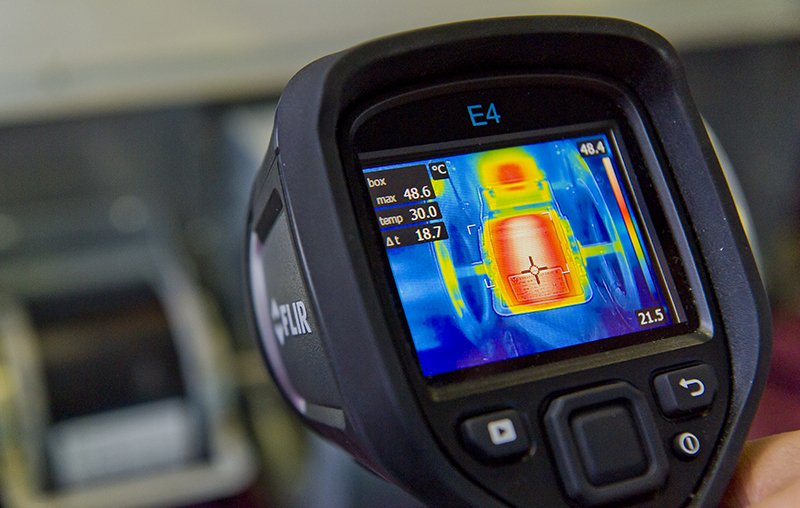Smart thermostat significantly saves energy and costs

A smart thermostat for central air-conditioning systems that can save more than 10% on power and improve indoor comfort levels has been developed and launched onto the market by a team at City University of Hong Kong (CityU).
The technology belongs to a new generation of indoor thermostats that can boost energy efficiency for central air-conditioning systems in buildings. Its energy-saving and carbon-reduction features perfectly align with the objectives of the “Energy Saving Plan for Hong Kong's Built Environment 2015~2025+” mentioned in the latest policy address of the HKSAR government.
The CityU team comprises Jacky Lai Chun-tak and Ryan Yeung Shun-cheung, PhD students in the Department of Electronic Engineering (EE), and Dr John Chan Yau-chung, postdoctoral fellow in the Division of Building Science and Technology (BST). The consultants for the team were Professor Henry Chung Shu-hungfrom EE and Dr Norman Tse Chung-fai from BST.
“Conventional air-conditioning systems maintain indoor temperatures through the method of incessant temperature fluctuation. However, we have invented a new temperature control algorithm to control the fan coil in the system, keeping the indoor temperature even more stable. In addition, energy consumption of the air-conditioning system, including the fan coil, chilled water circuit and water pump, can be significantly reduced,” said Jacky.
“It is simple and cost effective to install smart thermostats, as the modification or replacement of the air-conditioning system is not required. Simply replacing existing thermostats with our smart ones can reduce 20 to 40% of energy consumption of the fan coil, or more than 10% in energy saving for the entire central air-conditioning system,” he added.

Jacky pointed out that conventional air-conditioning systems could only provide three options for fan speed: high, middle and low. However, the smart thermostat not only has the feature of step-less airflow control, but also “ultra-low speed”, which can provide fresh air to maintain good indoor ventilation.
“Our tests show that ultra-low speed can provide fresh air for rooms in office buildings or hotels with less than 50% of power consumption,” he said.
While conventional thermostats measure only the temperature around the wall of a room, the smart thermostat, combining with the use of “human comfort wireless sensor”, can measure the temperature at different locations. It can provide data concerning temperature distribution, power consumption, energy-saving efficiency and the thermal comfort level for users.
Dr Tse said that smart thermostat could not only regulate indoor temperatures, but also the human thermal comfort levels. With cloud technology and the Internet of Things, users can make use of smart phone apps and a cloud data platform to more accurately monitor and control temperatures and effectively manage power consumption, which can help reduce carbon emissions and advance the idea of “smart city”.
“Smart thermostats are particularly suitable for central air-conditioning systems in old buildings because there is no need to modify the existing structure of the systems,” he said. “And it can improve the overall energy efficiency in Hong Kong.”
The smart thermostat has received funding from the Technology Start-up Support Scheme for Universities (TSSSU) under the Innovation and Technology Commission for three consecutive years. The thermostat has been launched onto the market, with three patents having been filed.
“TSSSU provides opportunities and funding for students to set up their own companies, while they will do the sales and marketing themselves,” Professor Chung said. “Advancing the ‘smart city’ concept starts with the development of smart devices, and smart thermostat is one such device.”
The project allows students to transfer the knowledge and concepts that they acquired at university into commercial products, and contribute to the wellbeing of society, too.